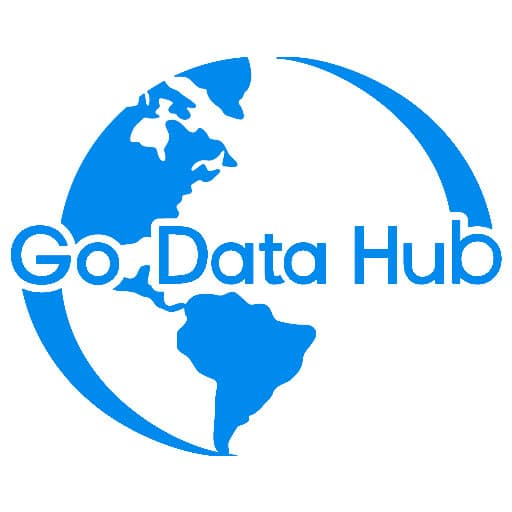The Anatomy of a Custom CRM


What Is a Custom CRM and Why Does Your Business Need One?
Understanding Custom CRM: A Customer Relationship Management (CRM) system is not just a tool, it’s the lifeblood of modern businesses. It’s designed to manage, analyze, and improve all interactions with your customers. While standard off-the-shelf CRMs offer basic functions, a custom CRM is like a suit tailored specifically for your business, considering unique processes, customer types, and sales strategies. It goes beyond cookie-cutter features to provide a solution that’s as unique as your business fingerprint.
Custom vs Standard CRMs: Unlike one-size-fits-all CRM solutions, custom CRMs are built from the ground up. Think of standard CRMs as apartments in a big building where each unit is identical. Custom CRMs, on the other hand, are like designing your own house — every room, every detail reflects your needs. They integrate more seamlessly with your existing processes and can be scaled up or tweaked as your business evolves.
Why Go Custom?: The competition is strong; to stand out, you need agility and precision. A custom CRM adapts to your business, not the other way around. It pinpoints customer behaviors, helps personalize communication, and streamlines operations by aligning with specific workflows. This means better customer service, increased efficiency, and, ultimately, a beefier bottom line. So, while a custom CRM might seem like a luxury, in today’s cutthroat business environment, it’s rapidly becoming a necessity. Custom CRM software development does require an upfront cost, but that cost pales in comparison to the benefits which increase your bottom line.
Table of contents:
- What Is a Custom CRM and Why Does Your Business Need One?
- How Does a Custom CRM Improve Customer Relationships?
- What Are the Core Components of a Custom CRM System?
- Why Is Data Integration Crucial in a Custom CRM?
- How to Ensure User Adoption of a Custom CRM?
- What Are the Security Considerations for a Custom CRM?
- How Do You Measure the Success of Your Custom CRM?

How Does a Custom CRM Improve Customer Relationships?
Tracking customer interactions is pivotal in a custom CRM. It creates a chronological diary of every touchpoint a customer has with your brand. From initial contact to post-sale support, this timeline becomes your playbook for understanding client needs and preferences, ensuring no detail is lost to memory or administrative disarray. Custom CRM development is an investment in your infrastructure that benefits your organization by increasing efficiency, helping you save money, increase sales, retain business and prosper overall.
A tailored CRM system personalizes customer communication. Gone are the days of one-size-fits-all marketing. A custom CRM analyzes purchase history and engagement to tailor offers and messages that resonate. This approach turns generic into genuine, elevating the customer’s experience with your brand.
Timeliness is next to godliness in customer service, and a custom CRM knows this. By facilitating swift, informed responses to inquiries, support issues, or feedback, your team can act with informed urgency. Streamlining this communication ensures every customer feels heard and valued, bolstering loyalty and satisfaction.
What Are the Core Components of a Custom CRM System?
At the heart of a tailor-made CRM system lies the Contact Management component. Think of it as the brain of the operation, holding crucial customer information in one central hub. This ensures that whenever you reach out, you already know who you’re talking to, their history, and potential needs. For businesses, this database of personal details, communication logs, and transaction histories isn’t just nice to have, it’s vital for personalizing the customer experience.
Then, there’s Sales Management. A custom sales CRM can literally increase your conversions and thereby help your organization do more business. Sales teams thrive on information and clear stages of progression. A custom CRM excels at providing that. It serves as the salesperson’s best tool for tracking deals from ‘just interested’ to ‘sold’. Dashboards provide real-time insights on sales funnels and performance metrics. This component is about empowering sales with the knowledge to close deals and forecast accurately.
Not forgetting the benefits of Marketing Automation within a CRM. If you’ve ever received an email that feels like it was written just for you, that’s marketing automation at work. This function lets you deliver personalized, timely, and effective campaigns to nurture leads and keep customers engaged, all while automating the grunt work behind the scenes.
Lastly, no CRM system would be complete without Customer Support. An integrated helpdesk feature is crucial for managing service inquiries and resolving issues efficiently. This component allows your support team to track tickets, prioritize requests, and provide swift assistance, improving overall customer satisfaction and loyalty.
Why Is Data Integration Crucial in a Custom CRM?
Data sits at the core of a Custom CRM, pivotal for providing a unified view of customer interactions. Imagine trying to complete a jigsaw puzzle with half of the pieces missing; that’s the scenario when customer data is scattered. A CRM without integrated data is like sailing without a compass – you have tools, but you can’t chart a clear course.
- Email systems: Seamlessly incorporate communication threads into the customer’s profile.
- Social media: Capture customer sentiment and engagement to enrich interaction history.
- Enterprise Resource Planning (ERP) systems: Merge financial and operational data for a 360-degree view of the customer relationship.
Integrating these touchpoints ensures that every department, from sales to support, operates with the complete context, boosting efficiency and customer satisfaction.
Nevertheless, integrating data is not without its hurdles. Challenges like data silos and mismatched formats arise, but they’re not insurmountable. Employing robust middleware solutions can bridge these gaps, syncing data across platforms in real time. Additionally, implementing data quality protocols ensures accuracy, completeness, and cleanliness of data, which is critical for effective decision-making.
Ultimately, data integration is the spine of a custom CRM, supporting all other functions and delivering insights that drive personalized customer journeys.
How to Ensure User Adoption of a Custom CRM?
Boosting user adoption of a Custom CRM pivots on fusing simplicity with functional depth. The design and interface should thread the needle between intuitive navigation and robust features. A clutter-free dashboard where the most frequently used tools are front and center shaves down user learning curves. Tailor the interface to reflect the user’s daily workflow, enabling a seamless transition from old methods to your Custom CRM.
Training and support are the twin cornerstones of user adoption. Kick off with comprehensive training sessions, blending various methods—videos, manuals, and interactive Q&As—to cater to diverse learning styles. Post-launch, maintain a support lifeline via chat, email, or phone to resolve hiccups swiftly. This ongoing support reinforces confidence in the CRM and nudges users towards regular utilization.
Measuring and enriching user engagement is a continuous pursuit. Deploy analytics to monitor login frequency, feature usage, and task completion rates. These metrics illuminate which CRM components are hits and which are misses, guiding iterative enhancements. Regular updates, based on user feedback and usage patterns, ensure the CRM evolves in lockstep with user needs, perpetuating a cycle of engagement and improvement.

What Are the Security Considerations for a Custom CRM?
In building a Custom CRM, adhering to data privacy and protection laws is non-negotiable.
CRMs host sensitive customer data that is subjected to regulations such as GDPR in Europe, CCPA in California, and various industry-specific guidelines internationally.
Failure to comply can result in hefty fines and reputational damage. It’s essential to recognize local and global laws applicable to your CRM’s user base, ensuring all data handling meets legal standards.
Security features within a CRM are the digital armor protecting customer information from breaches and unauthorized access.
For robust security, encryption is a must, both for data at-rest and in-transit. Multi-factor authentication (MFA) adds an extra layer of verification, decreasing the likelihood of successful cyber attacks. Additionally, role-based access controls (RBAC) ensure that users can only access information pertinent to their role, limiting exposure to sensitive data.
Just like your car needs regular servicing, your CRM requires consistent maintenance and updates. Cyber threats evolve, and your CRM’s defenses should too.
Scheduled security patches and software updates are imperative to seal off vulnerabilities. Moreover, regular security audits and threat assessments can preemptively identify areas for improvement, and data backup procedures should be established to recover from potential data losses promptly.
How Do You Measure the Success of Your Custom CRM?
Measuring the success of your custom CRM hinges on pinpointing the right key performance indicators (KPIs). Effective KPIs may include metrics like customer retention rates, lead conversion rates, and sales cycle lengths. It’s vital to align these KPIs with your business objectives to ensure that your CRM is delivering value where it counts.
To delve into the performance of your CRM, employ robust analytic tools. This can range from built-in CRM reporting features to advanced business intelligence platforms. By leveraging these technologies, you can track customer interactions, sales trends, and service case resolutions to paint a comprehensive picture of your CRM’s impact.
Finally, convert those CRM metrics into actionable business strategies. Analyze customer behavior patterns to refine your sales approach or personalize marketing campaigns. An effective CRM isn’t just about the numbers—it’s about using insights to propel business growth and deliver unrivaled customer experiences.

